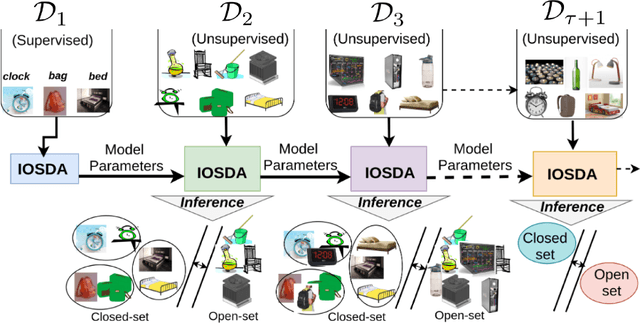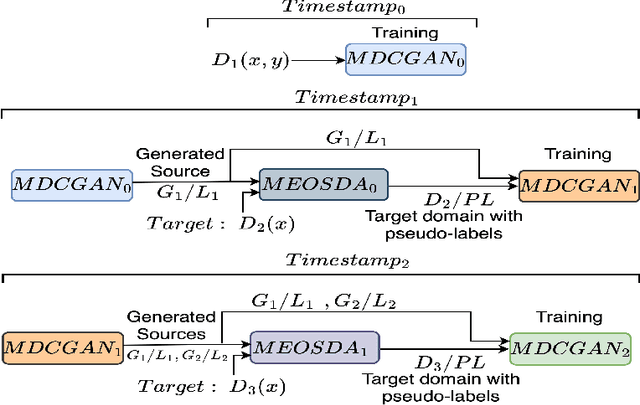Sayan Rakshit
Incremental Open-set Domain Adaptation
Aug 31, 2024



Abstract:Catastrophic forgetting makes neural network models unstable when learning visual domains consecutively. The neural network model drifts to catastrophic forgetting-induced low performance of previously learnt domains when training with new domains. We illuminate this current neural network model weakness and develop a forgetting-resistant incremental learning strategy. Here, we propose a new unsupervised incremental open-set domain adaptation (IOSDA) issue for image classification. Open-set domain adaptation adds complexity to the incremental domain adaptation issue since each target domain has more classes than the Source domain. In IOSDA, the model learns training with domain streams phase by phase in incremented time. Inference uses test data from all target domains without revealing their identities. We proposed IOSDA-Net, a two-stage learning pipeline, to solve the problem. The first module replicates prior domains from random noise using a generative framework and creates a pseudo source domain. In the second step, this pseudo source is adapted to the present target domain. We test our model on Office-Home, DomainNet, and UPRN-RSDA, a newly curated optical remote sensing dataset.
FRIDA -- Generative Feature Replay for Incremental Domain Adaptation
Jan 11, 2022



Abstract:We tackle the novel problem of incremental unsupervised domain adaptation (IDA) in this paper. We assume that a labeled source domain and different unlabeled target domains are incrementally observed with the constraint that data corresponding to the current domain is only available at a time. The goal is to preserve the accuracies for all the past domains while generalizing well for the current domain. The IDA setup suffers due to the abrupt differences among the domains and the unavailability of past data including the source domain. Inspired by the notion of generative feature replay, we propose a novel framework called Feature Replay based Incremental Domain Adaptation (FRIDA) which leverages a new incremental generative adversarial network (GAN) called domain-generic auxiliary classification GAN (DGAC-GAN) for producing domain-specific feature representations seamlessly. For domain alignment, we propose a simple extension of the popular domain adversarial neural network (DANN) called DANN-IB which encourages discriminative domain-invariant and task-relevant feature learning. Experimental results on Office-Home, Office-CalTech, and DomainNet datasets confirm that FRIDA maintains superior stability-plasticity trade-off than the literature.
 Add to Chrome
Add to Chrome Add to Firefox
Add to Firefox Add to Edge
Add to Edge